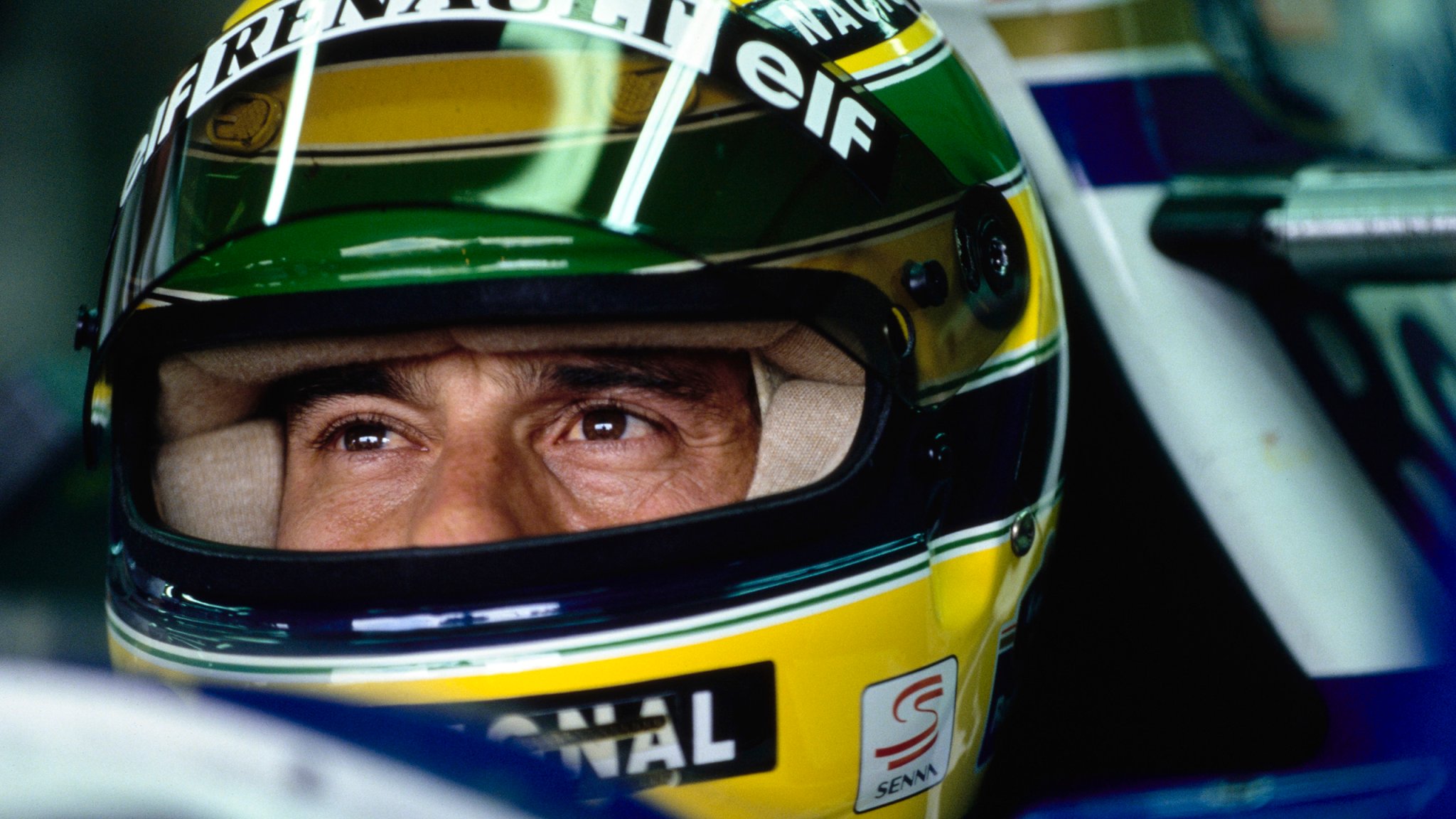

There’s one line in the 2010 Senna documentary we’ve all seen that gets me every time, driving me to tears if I wasn’t already crying. “Brazilian people need food, education, health, and a little bit of joy,” a woman says. “And now that joy is gone.” It’s a sentiment that not only perfectly encapsulates the grief of an entire nation, but the indignation, too. Today, three decades removed from Ayrton Senna’s fatal crash, the shock has long since dissipated, but the pain is timeless.
Japan’s adoration of Senna was second only to his homeland’s. Japanese Formula 1 broadcasters addressed the camera live from the pit lane of the 1994 San Marino Grand Prix to announce Senna’s death, struggling to hold back tears. My colleague José reminded me of this poster drawn by legendary manga artist Akira Toriyama, who only recently passed in March, depicting the first family of Dragon Ball Z posing with Senna’s championship-winning McLaren MP4/5B.



It’s perhaps for this reason that almost exactly a year after Senna’s death, Sega—the Japanese video game company that had previously partnered with the superstar to develop an F1 sim years earlier—released a parting gift only in Japan to soothe mourning fans called Ayrton Senna Personal Talk: Message for the Future. It wasn’t technically a game, but rather a three-hour collection of interviews from 1987, 1988, 1990, and 1993 conducted by Yoshitoshi Sakurai, Honda’s then-director of F1 operations, perfectly spanning Senna’s tenure at McLaren. The very first clip, in fact, pertains to Senna’s hopes and expectations as he sets to leave Lotus for the Marlboro-sponsored team, where he’d of course win all his three championships.
The one thing you pick up on quickly with Personal Talk is that while there is a visual component—mostly photographs taken during these interviews—there’s no video. These are pretty much audio recordings with a cadence of repeating stills, that play in chunks of a few minutes at a time. The interactive sequences between the clips, when you’re choosing what to listen to next, are set in a home, while the interviews themselves kept in books labeled “Personal Talks.” When one clip’s finished, you flip a page to move on to Senna’s answer to the next question, as a soft, solemn piano melody plays. These are actually compositions by pianist Katsunori Fukay from his album Heart to Heart: Dedicated to Ayrton Senna, according to Sega Retro.

The whole experience has a very warm and earnest, albeit lonely feeling. Senna touches on a variety of topics over the three hours, from his start in go-karting as a boy, to his faith, the politics of the sport that he was obviously very familiar with, and—believe it or not—why he didn’t much like hooking up on grand prix weekends.
As the interviews go on and the years pass, the conversations become more philosophical. At Monaco in 1993, Senna talks about how Japan could assist Brazil with its socioeconomic problems and expresses concern for technological and industrial development at the expense of the environment.
“Big companies, public politicians, they sometimes make bad decisions,” Senna says at about the 2-hour, 49-minute mark. “And they have the power. And only when it is so clear that it is a bad thing, that it gets reversed. Otherwise, it goes underneath. People don’t see it now, but the consequence of it comes up later, when it’s too late.”

I won’t pretend Senna’s most profound musings are hiding on this obscure CD-ROM—especially not when the audio quality of the recordings only seems to get worse the further you listen. But then, I wouldn’t guess the people responsible for compiling these interviews were sure of that, either. “Message for the Future,” to me, is less a declaratory title and more of a hopeful one. Somewhere in here, this man who inspired so many millions of people across the globe has said something we shouldn’t soon forget, that we should carry with us. And if we do that, maybe we can keep him alive, too.
Three decades on, Ayrton Senna continues to impact those like myself, who never did and never will have the opportunity to watch him live on the track. His legacy has only become more immense since May 1, 1994, and it’s impossible to imagine it eroding now. It’s obvious Personal Talk is a plea for solace, by and for the people who loved Senna. Knowing what we know today, can you blame them?
“The main difficulty is to understand sometimes why something not so good happens in our life,” Senna says in one of the final interview clips, from that Monaco chat in ’93. “If we lose a friend or a family member, it hurts. And you ask, ‘why [has this] happened to me?’ We don’t have the capability to understand. Our minds are too small, we cannot understand it, and it takes a lot of strength to overcome those situations that we don’t understand.
“And sometimes later, a year or 10 years, that situation may come around and show [itself] a little bit different. That was not such a good thing, but that was perhaps a necessary thing.”
